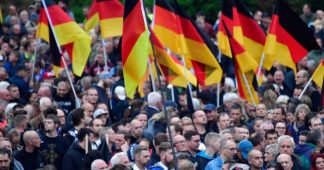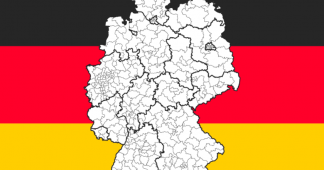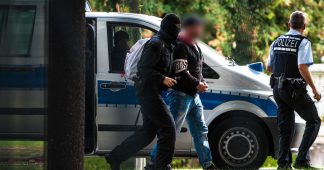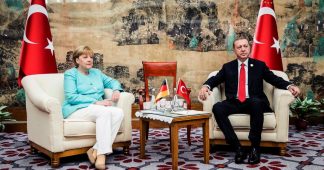Founded only five years ago, the Alternative for Germany has grown from a marginal party to a game-changer in federal and state politics — and become ever more radical. Is it a testament to the strength of German democracy, or a threat to it?
September 21, 2018
For three hours every month, they set up shop right next to the flower stand. There are only four people, a table and an umbrella from which a blue T-shirt hangs. It’s emblazoned with the party’s logo and the words, “Nobody’s perfect, but Brandenburgers come pretty damn close.” Here, at the weekly farmers market in Woltersdorf, a 40-minute drive by car from Berlin, Kathi Muxel, the district chair of the Alternative for Germany (AfD) party for the Oder-Spree region, says: “We’re the only ones who come here, even if there’s no upcoming election. People appreciate that.”
Several times a week, AfD adherents plant their umbrella somewhere in the area. Some take the day off from work, while others are self-employed and can set their own schedule. They wait for the people to show up — and they always do — and then they talk. They bring up their annoyance with expensive street lights in the town of Neuzelle, or the planned move of the recycling center in the Berlin suburb Erkner, or the “federal government’s dishonesty” when it spoke of a mob attack in Chemnitz. After all, they say, there were reports that no mob attacks actually took place at all.











